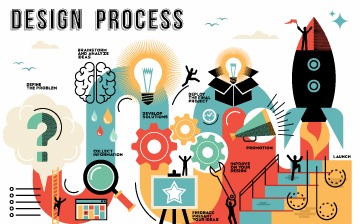Blog
Let's start by defining what a process is: in the simplest terms, it is the set of steps that we determine to be necessary to reach a goal. In order for processes to be optimal, we usually prioritize, eliminate, organize, combine, and simplify the steps. This way, a process becomes an ally in our daily work, leading us successfully towards achieving our goals. However, sometimes we perceive processes as bureaucratic burdens rather than tools that facilitate and improve our work.
To approach processes correctly and have them help us stay professionally "fit," it is necessary to consider that there are processes that are relevant and others that are not.
When is a process relevant for an organization?
If we want to be competitive. According to Harvard Business Review, a process is relevant to ensure consistency and reliability in our products and services. This doesn't mean that all processes need to be continuously updated; we should focus on strategic points where we interact with the customer and address the processes that enable flawless delivery.
When innovation is vital for our success. Processes are better received by employees working in manufacturing, finance, and operations as they emphasize consistency, reliability, and efficiency, which are essential characteristics for achieving results in these areas. On the contrary, individuals in sales, marketing, and customer service, whose tasks prioritize social relationships, may not embrace processes with the same enthusiasm.
However, involving all departments of an organization in processes related to innovation helps generate a creative culture among all employees by providing clear guidelines. Companies with a high emphasis on innovation, such as Dupont and Pixar, have established creative and collaborative innovation processes with excellent results.
To bring organization and order to continuous change. In highly dynamic sectors, change and transformation are essential requirements. Adapting to them is not always easy. According to a McKinsey study, in such environments, it is critical for middle management to be able to exert control over certain tasks, reach mid-term goals, and measure the success of their teams' contributions. Clear, measurable, and adaptable processes are a great tool for this purpose.
Processes are central to quality management and continuous improvement.
Why not dare to use processes to be competitive, innovative, and adaptable to continuous change?
